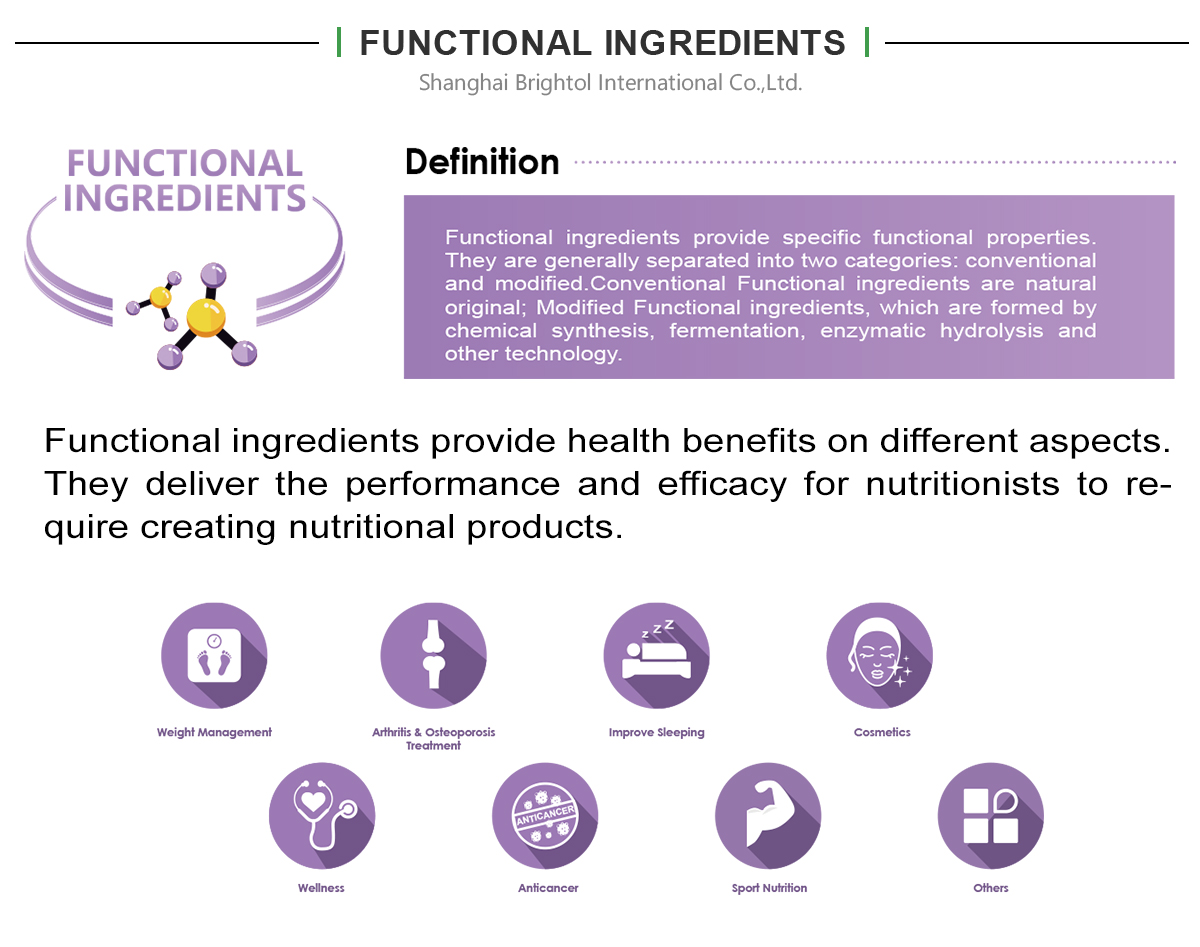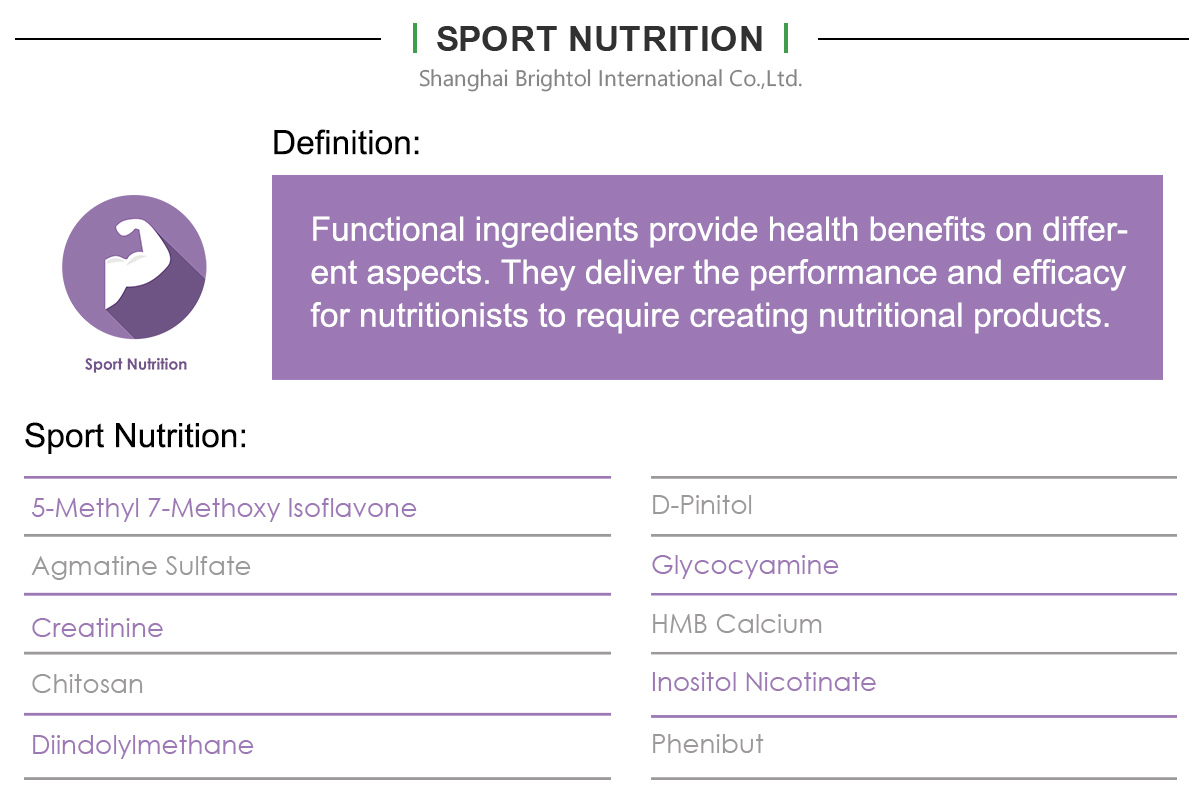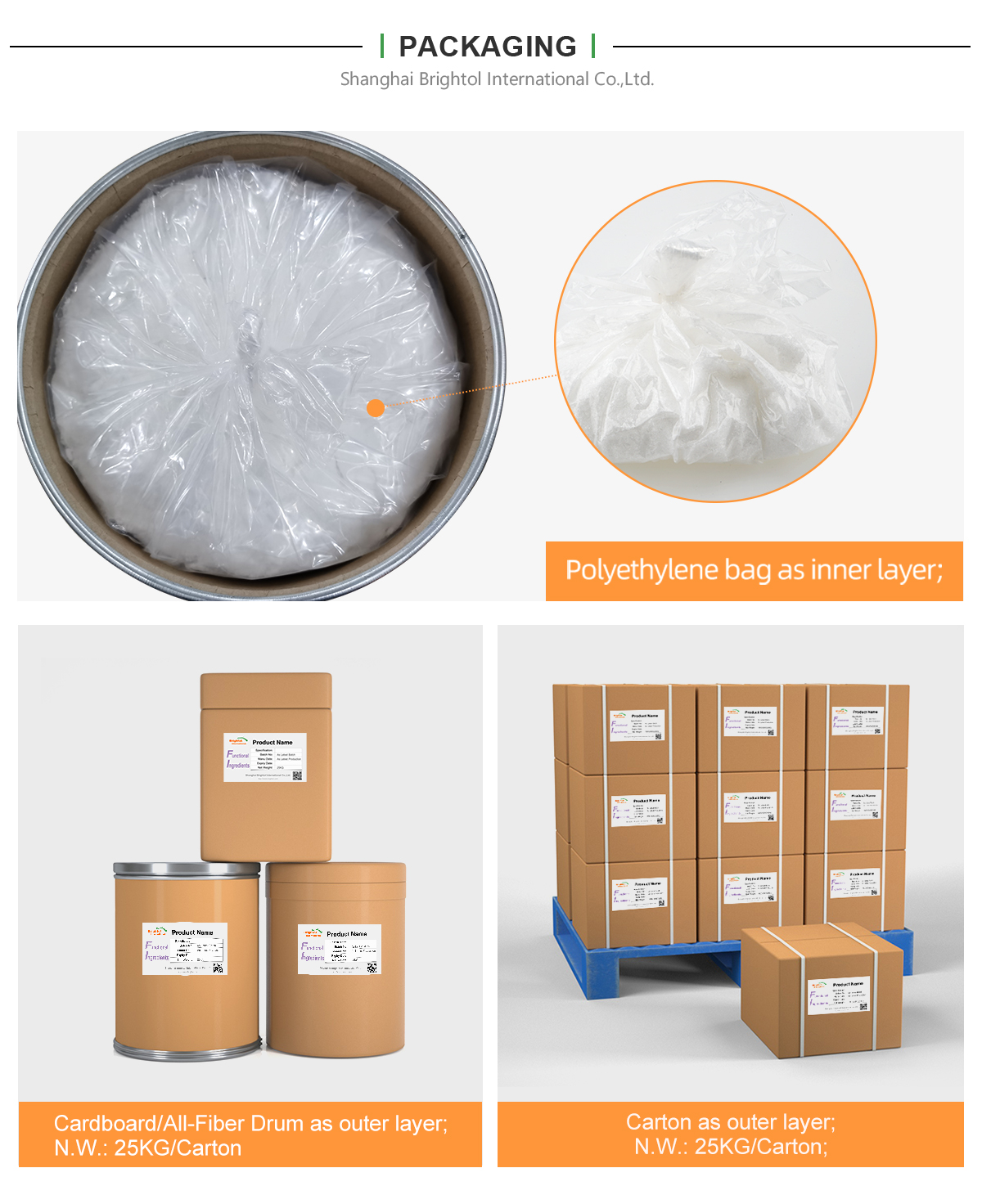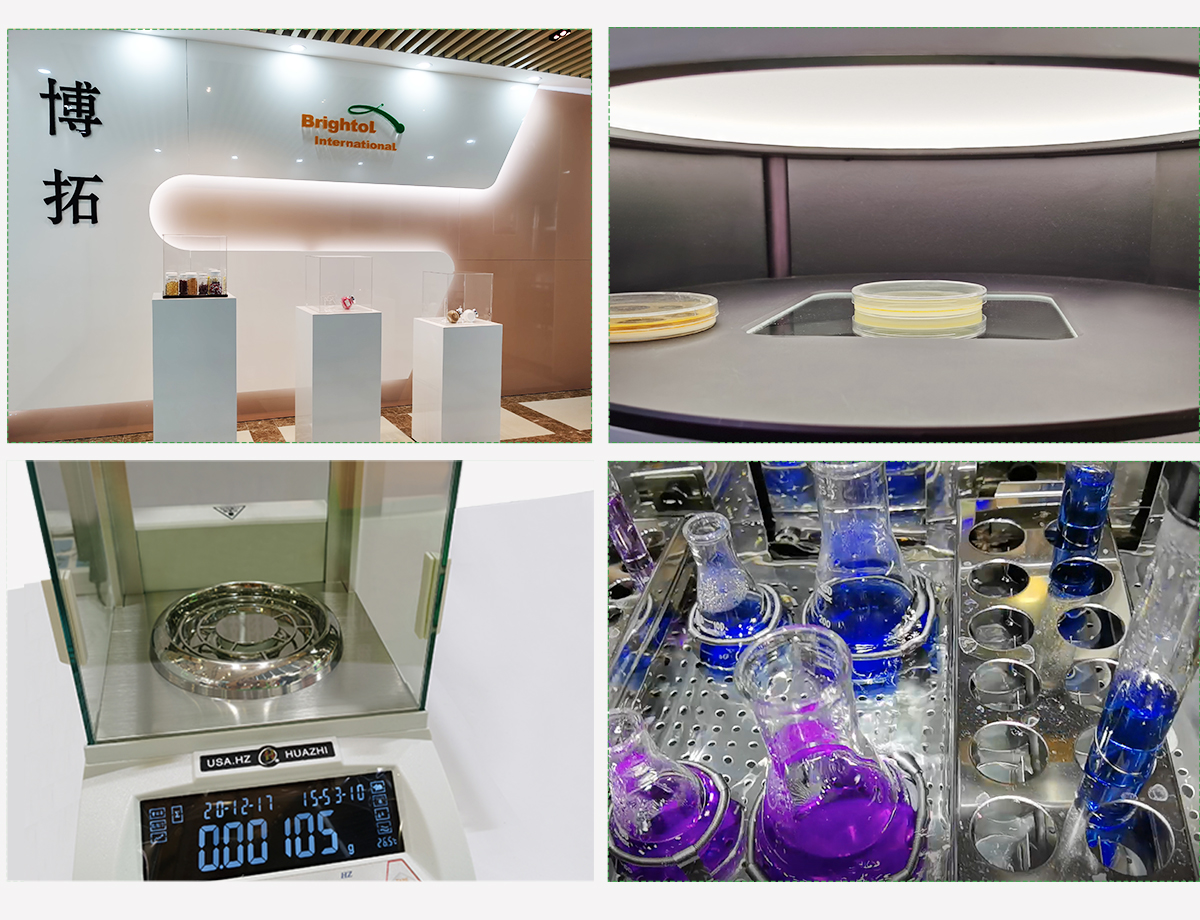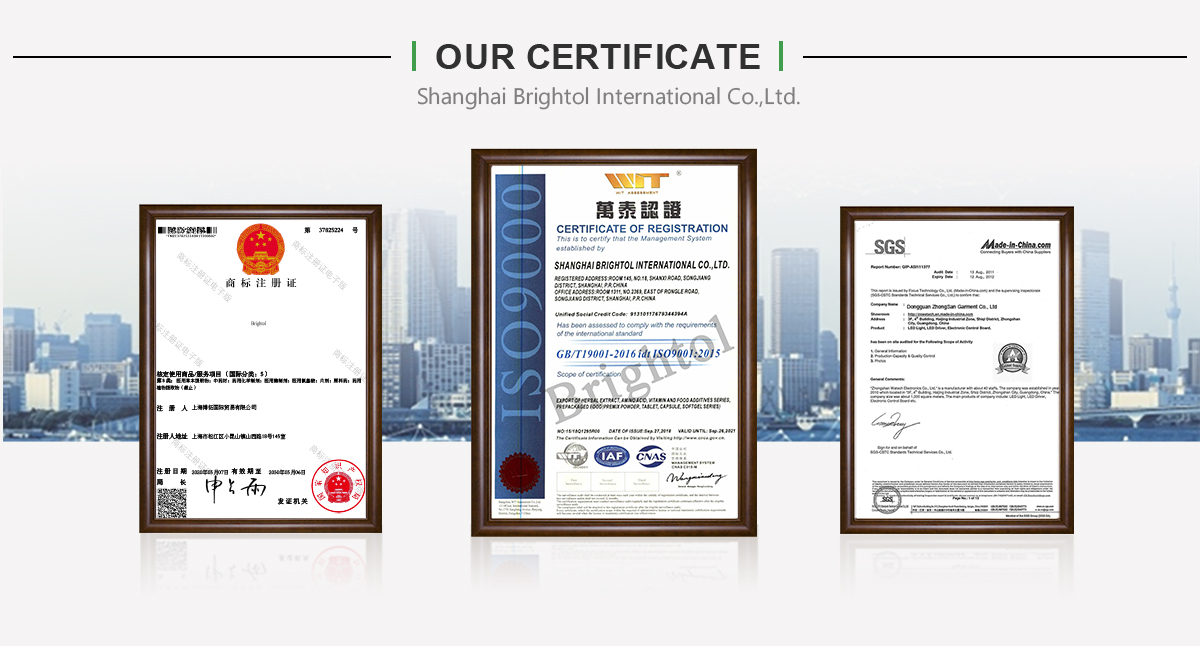

Product Name: Inositol Nicotinate
Synonyms: Inositol hexanicotinate; Inositol hexa-3-pyridinecarboxylate
Molecular Formula: C42H30N6O12
Molecular Weight: 810.73
CAS No.: 6556-11-2
EINECS: 229-485-9
Description:
Inositol nicotinate is a compound made of niacin (vitamin B3) and inositol. Inositol occurs naturally in the body and can also be made in the laboratory.......
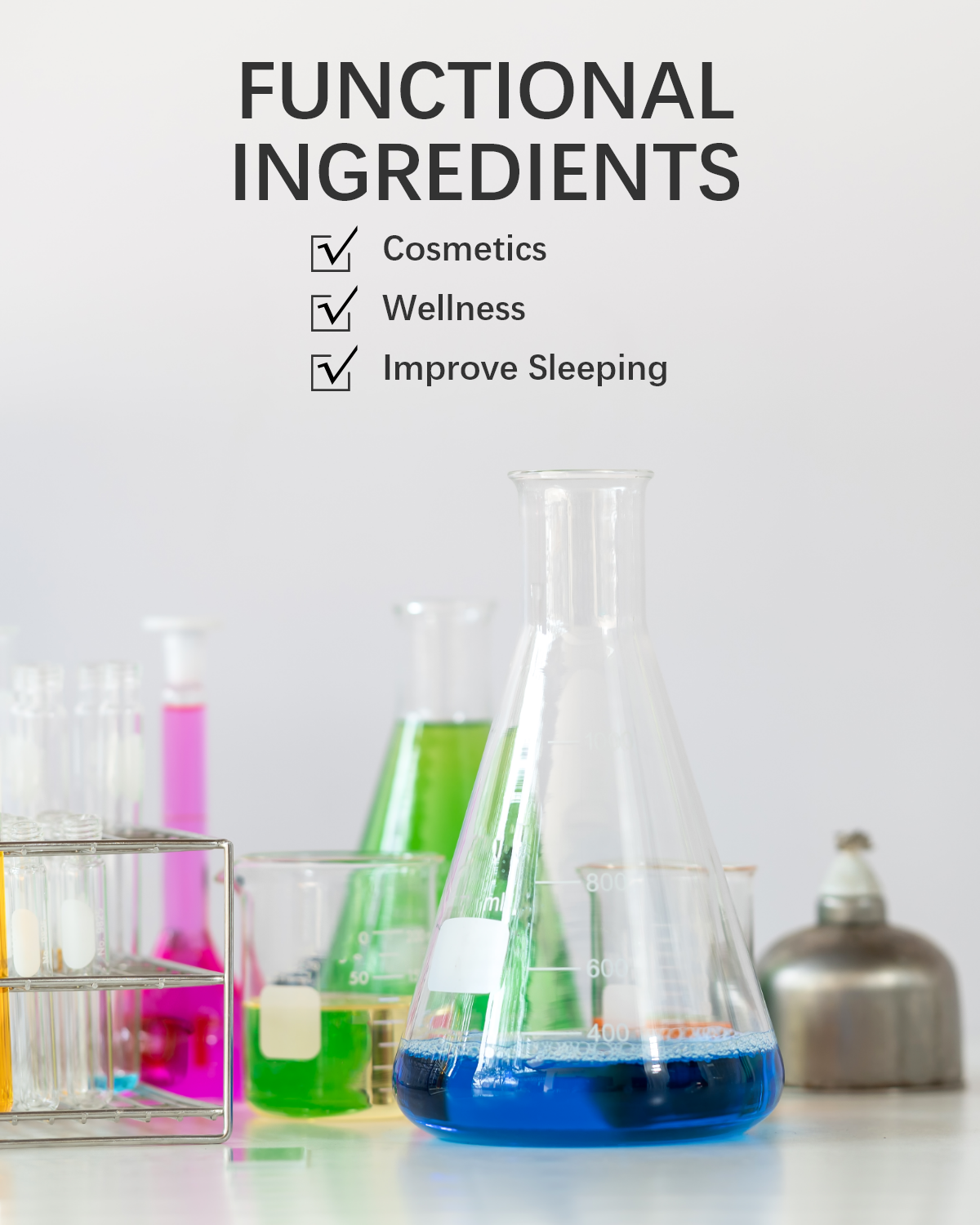

Product Name: Inositol Nicotinate
Synonyms: Inositol hexanicotinate; Inositol hexa-3-pyridinecarboxylate
Molecular Formula: C42H30N6O12
Molecular Weight: 810.73
CAS No.: 6556-11-2
EINECS: 229-485-9
Description:
Inositol nicotinate is a compound made of niacin (vitamin B3) and inositol. Inositol occurs naturally in the body and can also be made in the laboratory.
Inositol nicotinate is used for treating blood circulation problems, including pain when walking due to poor circulation in the legs (intermittent claudication); skin changes caused by pooling of the blood in the legs (stasis dermatitis) when veins are ineffective in returning blood to the heart; narrowing of the blood vessels leading to cold fingers and toes (Raynaud's disease); and blood flow problems in the brain (cerebral vascular disease). Inositol nicotinate has been used in conventional medical practice in Great Britain for improving symptoms of poor circulation for many years, although it is usually not the preferred treatment choice.
Inositol nicotinate is also used for high cholesterol; high blood pressure; sleep problems (insomnia); migraines related to “hardening of the arteries” (atherosclerosis); skin conditions, including scleroderma, acne, dermatitis, psoriasis, and others; inflammation of the tongue (exfoliative glossitis); restless leg syndrome; and schizophrenia and other mental illnesses.
Health benefits:
1. Blood disorders of the brain.
2. Migraine headaches.
3. Hardened skin (scleroderma).
4. Sleeplessness (insomnia).
5. High blood pressure.
6. Restless leg syndrome.
7. Acne.
8. Skin inflammation (dermatitis).
9. Inflammation of the tongue (exfoliative glossitis).
10. Psoriasis.
11. Schizophrenia.
